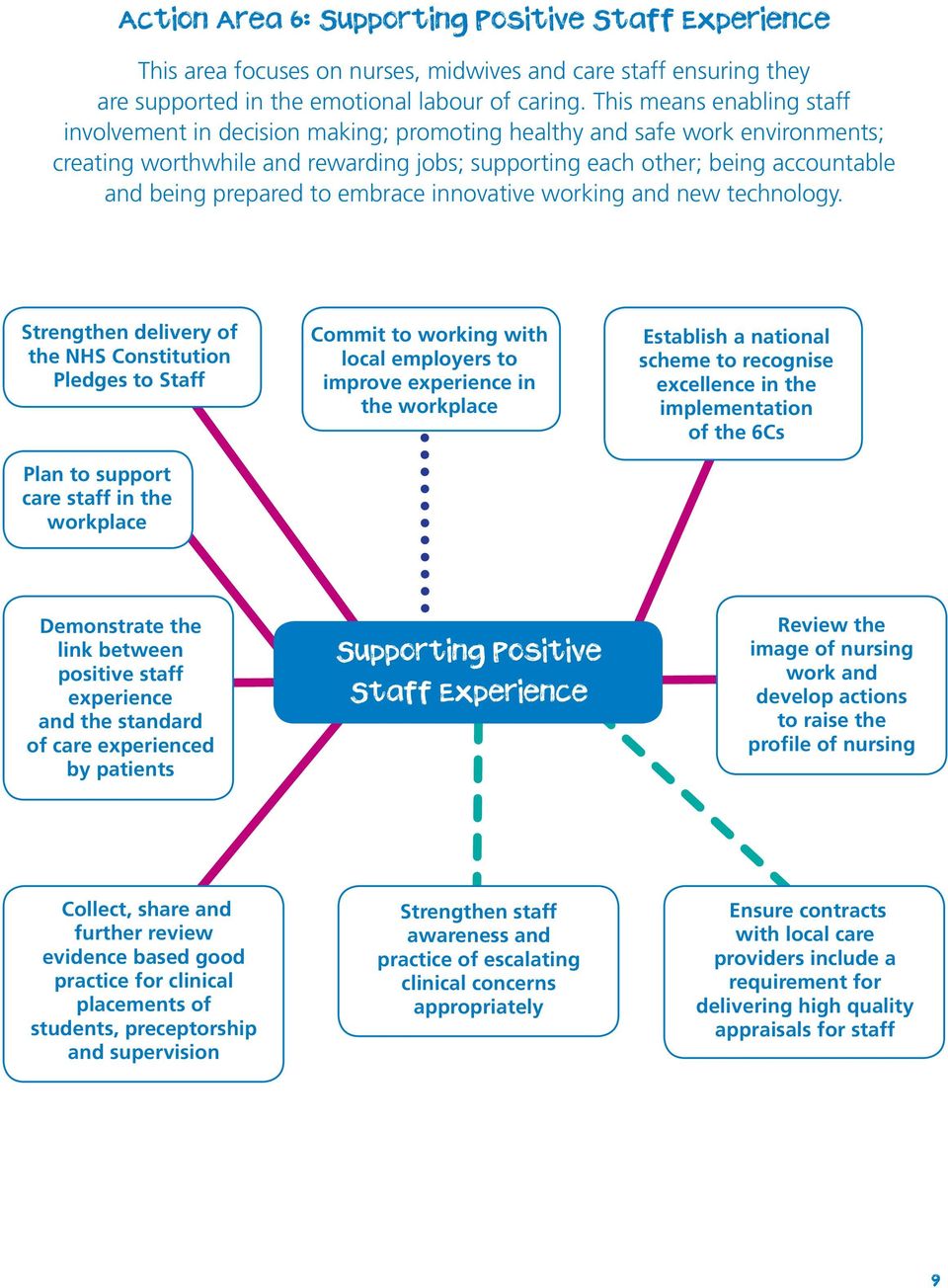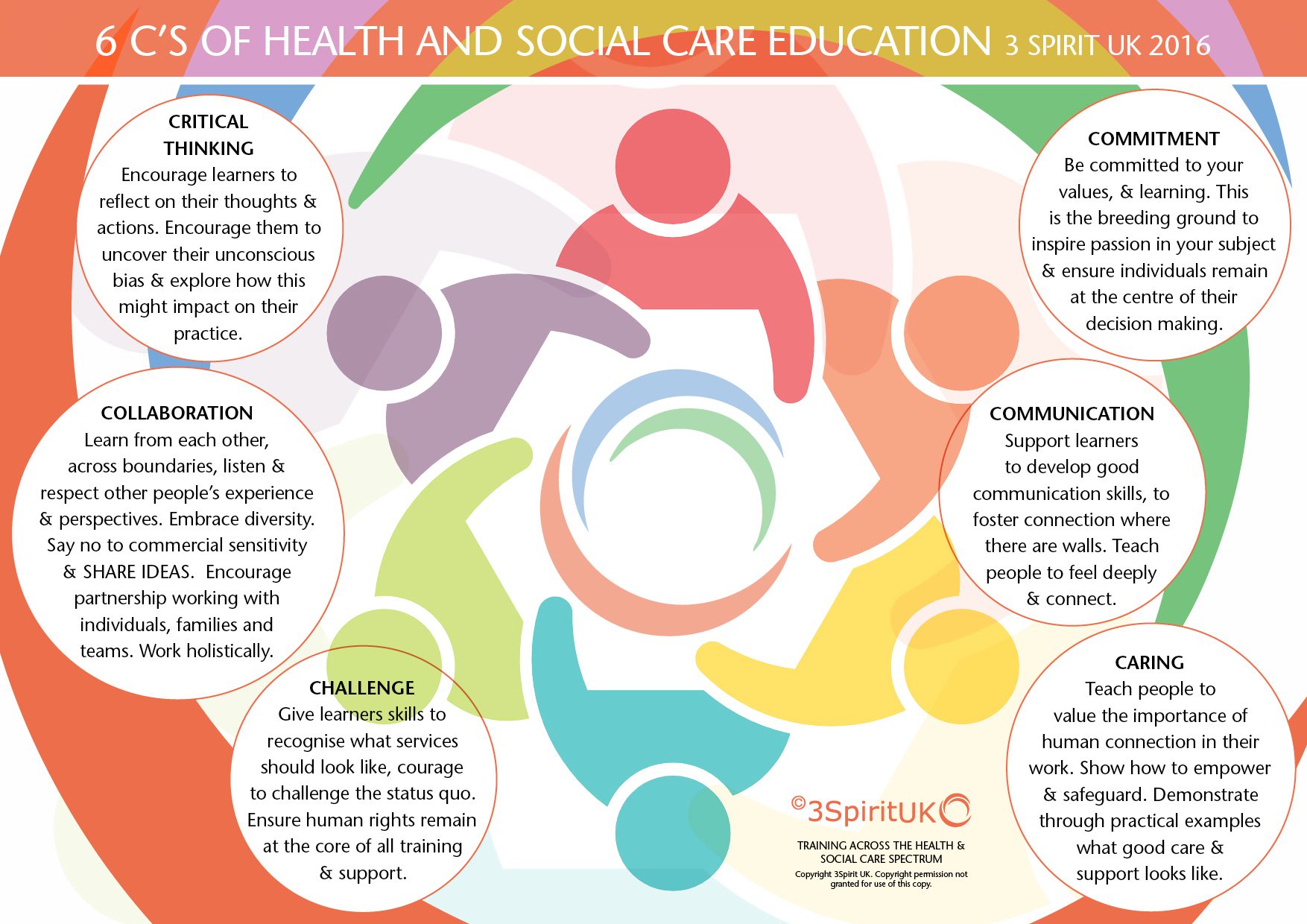6 Cs In Care

6 C's = Care, compassion, competence, communication, courage and commitment! Thanks ) If they ask you scenario based it's quite easy, I've used communication when they ask me about skills in current work and how important it is to be able to communicate with diverse groups of people and children ettc. Launched in December 2012, Compassion in Practice – our culture of compassionate care, is the three year vision for nursing drawn up by Jane Cummings CNO for England. This short film introduces the 6Cs, with further detail provided within this paper. The 6Cs are the values and behaviours of Care, Compassion, Competence, Communication, Courage. Therefore, it's no surprise that there are more of them working in the field than any other healthcare professional. Nurses operate on six core values which are commonly known as the 6 C's. These are Care, Compassion, Competence, Communication, Courage and Commitment.
- Patients & Visitors
- Patient Information
- Visitor Information
- Locations & Directions
- Driving Directions, Parking & Maps
- Our Medical Centers
- Services
- News & Events
- About Us
Coronavirus
COVID-19 vaccines: To get the latest updates and sign up to stay informed about COVID-19 vaccines, visit our vaccine information page.
For VA-specific information: Read our coronavirus FAQs and public health response, or use our coronavirus chatbot.
Prepare for a visit: Everyone entering our facilities is screened, and visitors are limited. Face coverings are mandatory. Please contact us first before going to any of our locations. For some needs, you may be able to get care at home by phone or video.
For the latest coronavirus information: Visit the CDC website.
Welcome

Honoring America’s Veterans with quality health care services, part of the largest integrated health care ...
VISN 6 Newsletter
VA Mid-Atlantic Health Care Network's 'Voices of VISN 6' monthly newsletter
Alerts --
Please click here for more informaation on COVID-19 (Novel Coronavirus)
Local Features
6 Cs In Care Home Health
Please turn JavaScript on in your browser to view this content or visit the Local Features page.Inside Veterans Health
Please turn JavaScript on in your browser to view this content or visit the Inside Veterans Health section of VA's blog, VAntage Point.
Events & Classes
The calendar is currently unavailable.
VA Mid-Atlantic Health Care Network
3518 Westgate Drive
Durham, NC 27707
919-956-5541 919-956-7152 Directions
Telephone Care:
- 919-956-5541
Mon - Fri 8:00 - 4:30pm
Lending institutions want to lend money because it’s the way they make money. However, they only want to lend money to a borrower who is able to repay the loan on time and in full.
Lenders customarily analyze the credit worthiness of the borrower by using the Five C’s: capacity, capital, collateral, conditions, and character. Each of these criteria helps the lender to determine the overall risk of the loan. While each of the C’s is evaluated, none of them on their own will prevent or ensure access to financing. There is no automatic formula or guaranteed percentages that are used with the Five C’s. They are only a variety of factors that lenders evaluate to determine how much of a risk the potential borrower is for the financial institution.
1. Character – This is a highly subjective evaluation of the business owner’s personal history. Lenders have to believe that a business owner is a reliable individual who can be depended on to repay the loan. Background characteristics such as personal credit history, education, and work experience are all factors inn this business credit analysis. Character is the single most important factor considered by a reputable bank. Banks want to do business with people who are honest, ethical and fair. (The difference between the ability to repay a loan and the willingness to repay a loan is an example of a person’s character.) The knowledge, skills, and abilities of the owner and management team are vital components of this credit factor.
2. Capacity – This is an evaluation of the company’s ability to repay the loan. The bank needs to know how you will repay the funds before it will approve your loan. Capacity is evaluated by several components, including the following:
6 C's Compassion In Care
- Cash Flow refers to the income a business generates versus the expenses it takes to run the business analyzed over a specific time period-usually two or three years. If the business is a start up, prepare a monthly cash flow statement for Year 1.
- Payment history refers to the timeliness of the payments that have been made on previous loans. Today there are companies that evaluate commercial credit ratings (such as Dun & Bradstreet) that are able to provide this kind of history to lenders.
- Contingent sources for repayment are additional sources of income that can be used to repay a loan. These could include personal assets, savings or checking accounts, and other resources that might be used. For small businesses, the income of a spouse employed outside the business is commonly considered.

3. Capital – A company’s owner must have his own funds invested in the company before a financial institution will be willing to risk their investment. Capital is the owner’s personal investment in his/her business which could be lost if the business fails. The single most common reason that new businesses fail is undercapitalization. There is no fixed amount or percentage that the owner must be vested in his/her own company before he is eligible for a business loan. However, most lenders want to see at least 25% of a company’s funding coming from the owner. Contrary to what is advertised in the media, a bank will not fund 100% of the business venture. In almost every case, any principal that will own more than 10% of the company is required to sign a personal guanantee for the business debt.
4. Collateral – Machinery, accounts receivable, inventory, and other business assets that can be sold if a borrower fails to repay the loan are considered collateral. Since small items such as computers and office equipment are not typically considered collateral, in the case of most small business loans, the owner’s personal assets (such as his/her home or automobile) are required in order for the loan to be approved. When an owner of a small business uses his/her personal assets as a guarantee on a business loan, that means the lender can sell those personal items to satisfy any outstanding amount that is not repaid. Collateral is considered a “secondary” source of repayments-banks want cash to repay the loan, not sale of business assets.


Financial institutions will generally advance up to 80% of valid accounts receivable.
5. Conditions – This is an overall evaluation of the general economic climate and the purpose of the loan. Economic conditions specific to the industry of the business applying for the loan as well as the overall state of the country’s economy factor heavily into a decision to approve a loan. Clearly, if a company is a thriving industry during a time of economic growth, there is more of a chance that the loan will be granted than if the industry is declining and the economy is uncertain. The purpose of the loan is an important factor. If a company plans to invest the loan into business by acquiring assets or expanding its market, there is more of a chance of approval than if it plans to use the fund for more expenses. Typical factors included in this evaluation step include: the strength and number of competitors, size and attractiveness of the market, dependence on changes in consumer tastes and preferences, customer or supplier concentration, length of time in business, and any relevant social, economic, or political forces that could impact the business.
Restaurants and temporary employment agencies have highest rates of failure.
The greatest challenge to businesses is to attract and retain reliable employees.
6. Confidence – A successful borrower instills confidence in the lender by addressing all of the lender’s concerns on the other Five C’s. Their loan application sends the message that the company is professional, with an honest reputation, a good credit history, reasonable financial statements, good capitalization and adequate collateral.
- When applying for a small business loan, don’t forget the importance of personal relationships. Apply for a loan at a bank where you already have a positive business relationship. Also, make an attempt to meet with the person who will be evaluating your application, such as the bank’s lending officer, rather than the teller who handles your day-to-day banking transactions.
If potential customer hasn’t established a relationship with the financial institution, starting a checking account will do so.
- When lending small amounts of money, typically under $50,000, eligibility depends largely on personal and business credit scores. A credit analysis is not usually performed and the results of the personal and business credit scores will determine whether or not the loan is approved. If the loan request is declined, a credit analysis may be completed or the borrower may be asked to have another person or entity act as co-signer or guarantor.
- Some businesses don’t need to have a business plan to obtain a loan (where previous personal relationship has already been established) although business plans can be beneficial for reasons other than obtaining financing.